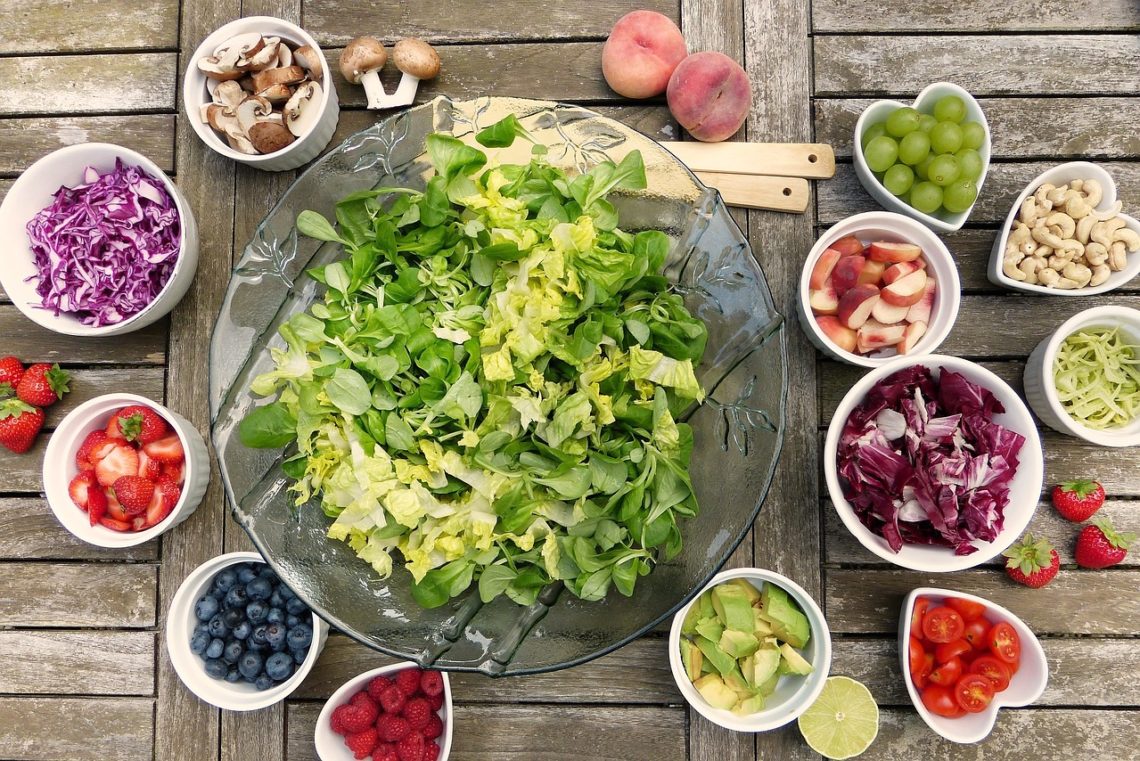by Ava Evans
It is much easier to pull through a drive-thru fast food lane on the way home from a stressful day than it would be to cook a homemade meal. The easy access and cheap prices are remarkably unbeatable in our never-ending fast-paced life. We begin our lives being given food when we are told it is time to eat, and as we move through life developing the ability to make choices and develop habits, the habits that we develop during our youth and into our adolescence set us up for a variety of different lifestyle choices down the road. Kids who are taught the importance of healthy eating habits combined with the knowledge of which foods nourish your body are more likely to practice those habits throughout their lives into adulthood.
There have been several decades of discussion within the nutritional sciences community about which foods exactly are ‘healthy’. For years we were told, “Eggs are a protein must have!”, which quickly turned into “Be careful eating eggs because they often have high levels of cholesterol.” Debates on which necessary amino acids and proteins can be consumed through a variety of fad diets have been covered by the media for the past decade. The Atkins diet, for example, prescribes eating a high protein and fat diet while significantly limiting your carbohydrate intake. A common misconception for this diet is the high fat intake. Instead of eating a clean healthy diet with lean meat and plenty of greens, the spotlight focus is shifted to high fat and increased protein intake. This increases the supply of fats that your body burns and supplies your metabolism with protein to lean out body fat and build muscle. However, there is a misconception with the idea of what healthy fats are and they are often misconstrued as junk food with trans fats and saturated fats.
The Mayo Clinic highlights saturated fats and trans fats as fats that are harmful and to be avoided. Saturated fats are fats typically found in animal products such as red meat and dairy that have been proven to raise cholesterol. An increased risk to develop type two diabetes has also been linked to consuming excess saturated fats. However, trans fats are found in most foods naturally in small amounts. Processed foods that contain high amounts of oil like cupcakes and fried food have high levels of trans fats after their ingredients go through a process called partial hydrogenation. Much like saturated fats, trans fats put you at risk for developing high cholesterol or type two diabetes. High cholesterol affects the way that your body pumps blood through your arteries and can damage your heart after several years of burdened use. Type two diabetes changes the body’s chemistry for how it uses the glucose found in food throughout the body.
Dietary beneficial fats such as Omega-3 fatty acids and polyunsaturated fatty acids occur naturally in most plant-based foods. These fatty acids, however contradictory their name may sound, have been proven to lower cholesterol levels and decrease the risk of coronary heart disease. While your body does need fat, it needs the right kind of fatty acids as opposed to saturated and trans fats.
Michael Pollan, the author of the Omnivore’s Dilemma, has been famously quoted on eating, “Eat food. Not too much. Mostly plants.” In this instance, he is signifying that the importance of eating is to nourish our bodies with healthy food and not to the point of overeating.
From a very young age, my parents have always instilled the value of healthy eating into our daily lives. This doesn’t mean we don’t eat cookies or potato chips, but we always balance our days in a very healthy manner. This has always been a struggle for me because I grew up as a very picky eater. I refused to eat vegetables, which I now am actively trying to incorporate into my daily diet. Starting off my day with a healthy breakfast that includes a balance of proteins and fats allows my brain and body to have all the nutrients it needs to function at it’s highest potential. For me, this usually includes a bowl of oatmeal with crunchy peanut butter and banana slices. The oatmeal provides a needed fiber that slowly releases energy to my body throughout the day, the peanut butter has Omega-3 that provides my body with the energy it needs to complete its tasks and the banana releases the necessary glucose to my brain that is required for it to function. Now that I am old enough to go out on my own and shop for my own food, I find myself always choosing healthier options that will supply the best for my body over time versus unhealthier options that wouldn’t satisfy all of my caloric and metabolic requirements.
Why is it important that what habits I learned during childhood have been carried through adolescence into adulthood? Because healthy eating is a lifelong skill. It is a teachable skill that can be incredibly impactful in people’s lives. Along with understanding which foods nourish your body, it is incredibly important to develop good eating habits. Habits like eating breakfast, lunch, and dinner each day, not skipping meals, and understanding the mental impact that food can have on a person. Skipping meals can lead to and be a sign of an eating disorder and cause people to develop negative relationships with food. Millions of people across the world are affected by a negative relationship with food, whether these be in the form of eating disorders, not having access to the foods with proper nutrients, or not having been taught the difference between unhealthy and healthy eating habits.
The awareness of what we are eating needs to be accompanied by a mental recognition that the food we are consuming is something the body needs and will fulfill its metabolic requirements. While it may seem intriguing to immerse yourself in a fad diet that tells you what to eat and when to eat it, it is vitally crucial to your health to understand and appreciate what will nurture your body. Instead of living to eat, it is important to recognize the importance of eating to live. This means following a diet of healthy foods.
Plant-based dietary methods such as vegetarian and veganism have become incredibly popular due to the overwhelming health benefits that are innately received by doing so. Eating fresh produce, plenty of beans and grains, and lean white meat, if any, is the best way to improve your health through your diet. Setting a pattern of healthy eating is a life essential. Whether that be making your own dinner every night or waking up early to cook yourself a healthy and fulfilling breakfast, these simple acts of awareness can drastically change your relationship with the food surrounding you.





